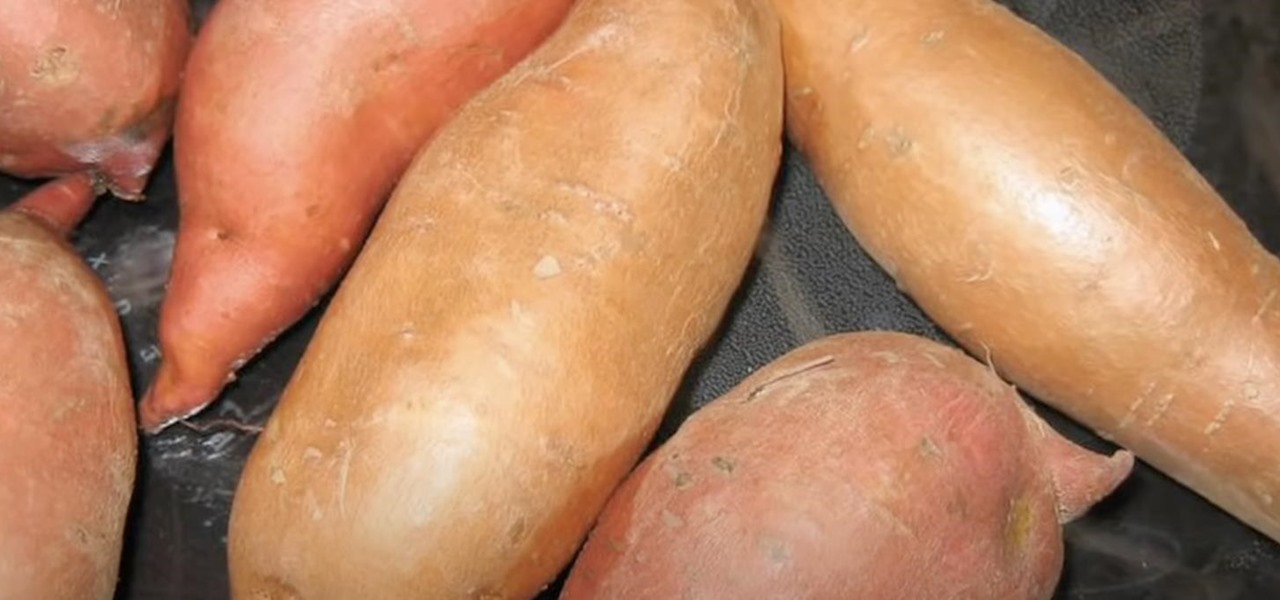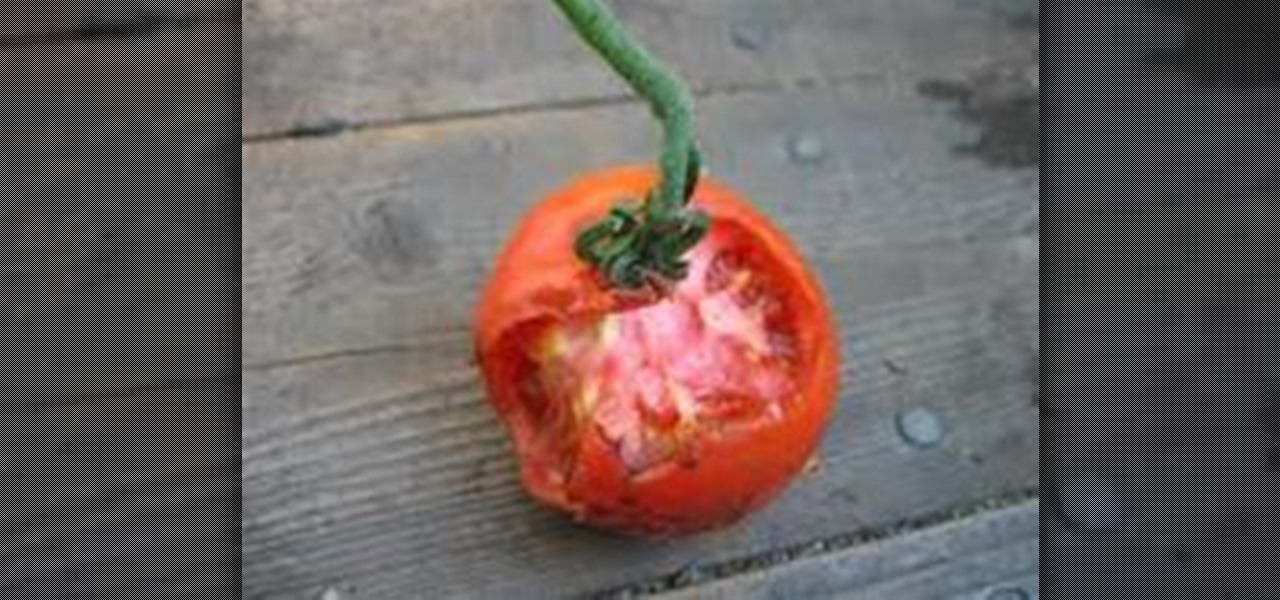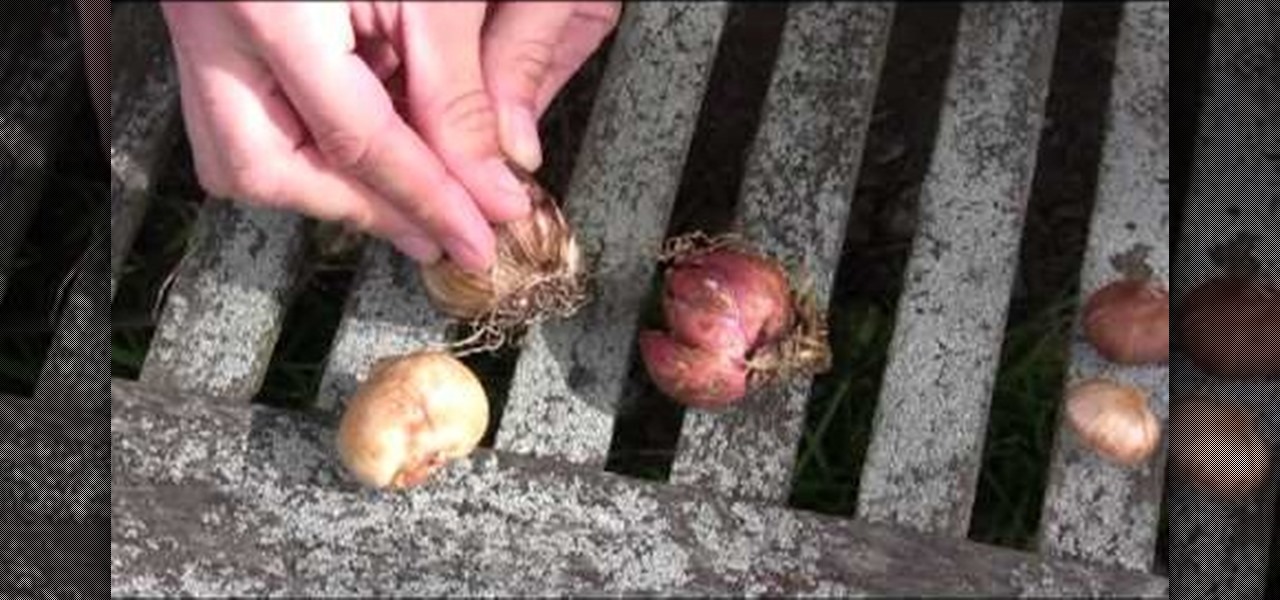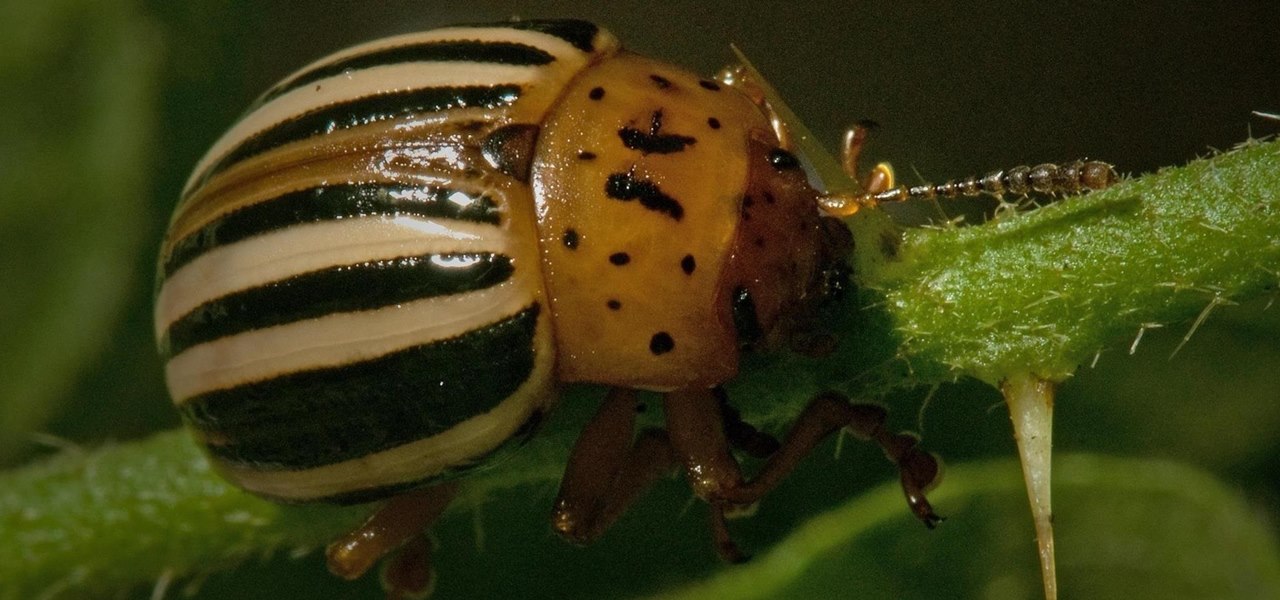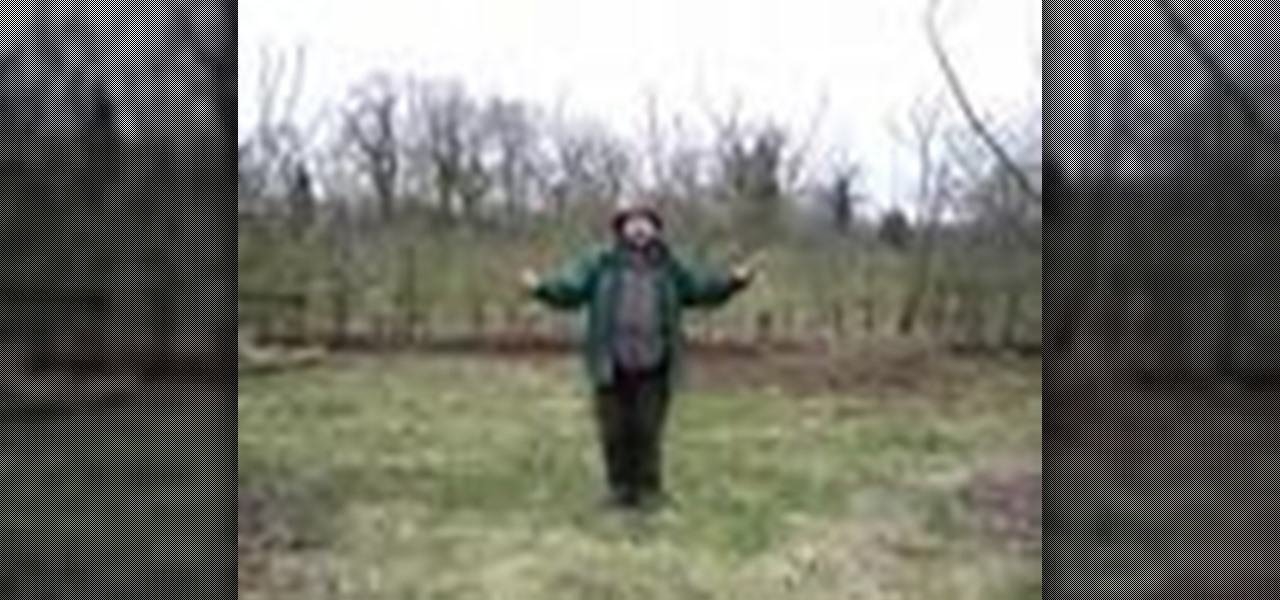Hot Gardening How-Tos


How To: Care for house plants
In this video series, our expert will teach you how to care for house plants. You will learn easy to follow instructions for caring for tropical house plants, cactus and other unusual house plants. Get tips for avoiding common gardening mistakes, using the right soil, and providing the right amount of light for plants.
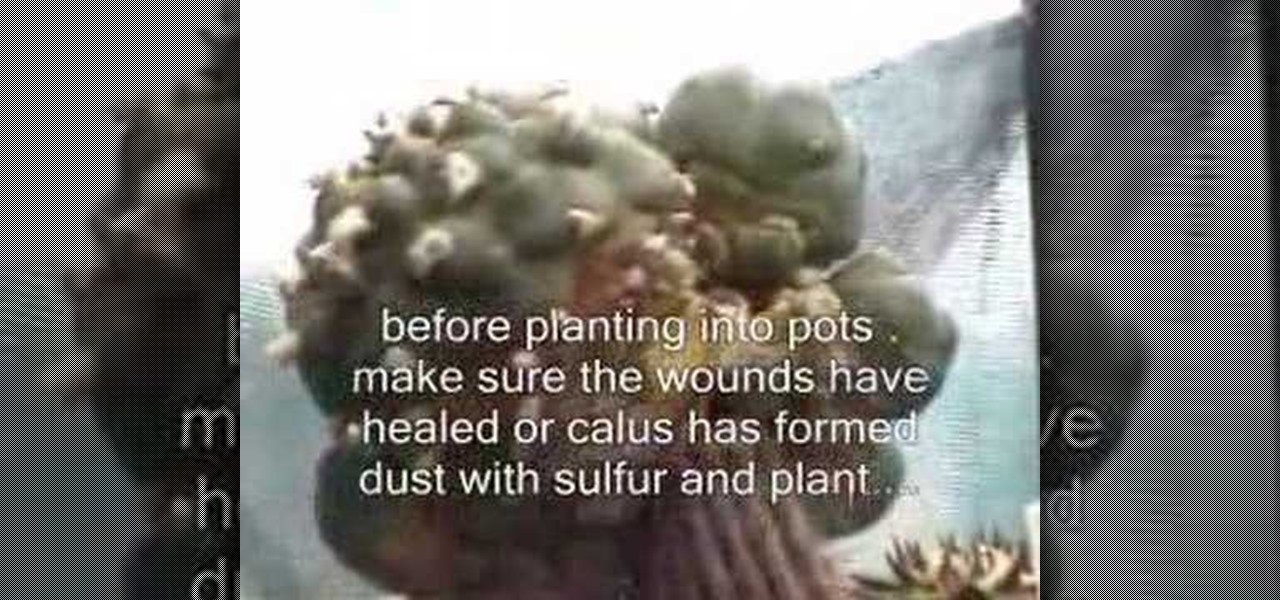
How To: Harvest Lophophora peyote pups from grafted scions
Lophophora harvest. This video is a quick demonstration on how I harvest Lophophora pups from grafted lophophora stock. When harvesting lophophora make sure of the following: Its spring or summer; You place your pups in a dry shady spot to heal; Also dust the mom and pups with sulfur to prevent rot.
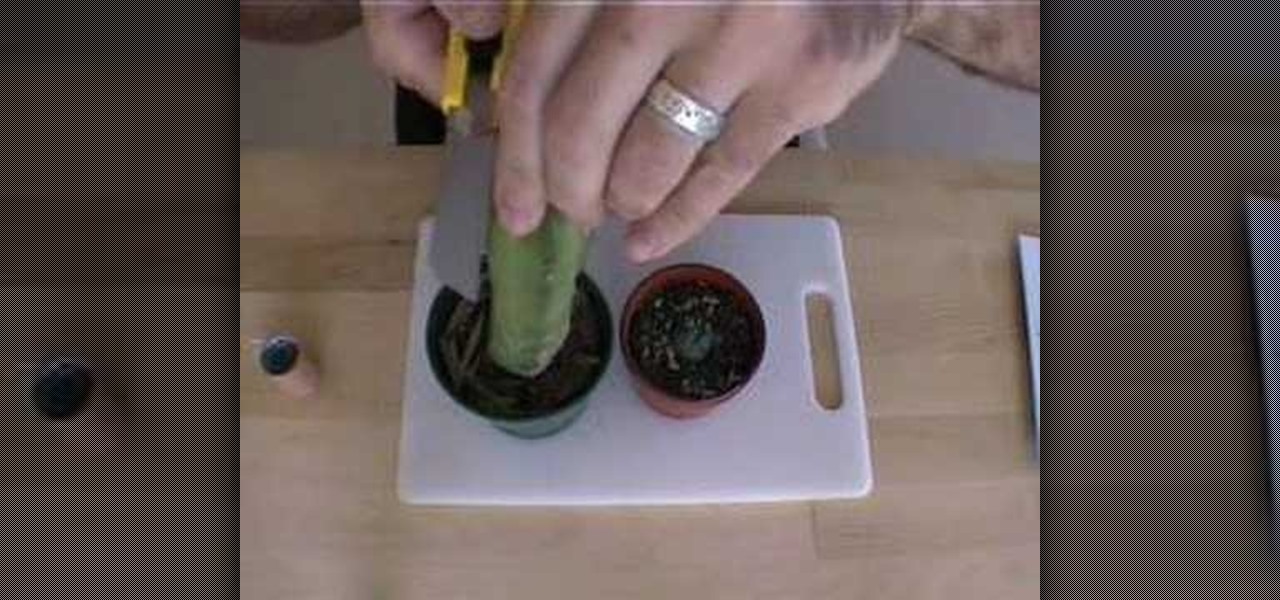
How To: Graft Lophophora peyote onto the scion plant
How to graft Lophophora The materials to be used:-
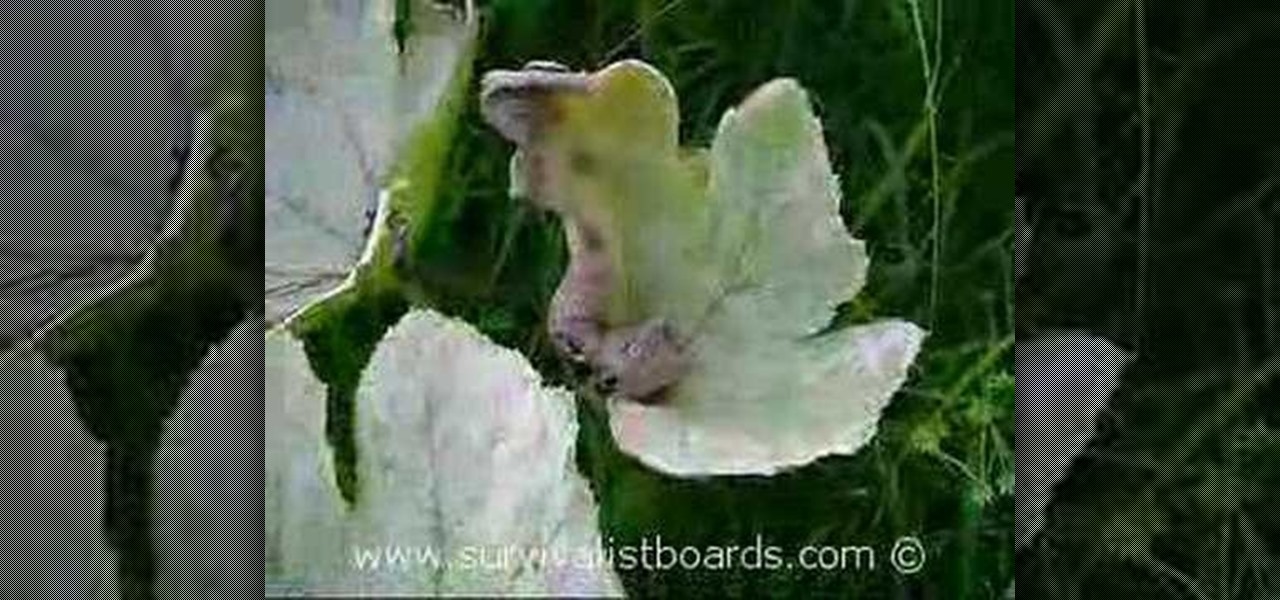
How To: Prevent powdery mold on plants
Powdery mold can be destructive to late season crops. The mold eats the leaves, and can finally kill the plant. Learn how to prevent and eliminate this problem. Take care of your survival garden, and it will take care of you.
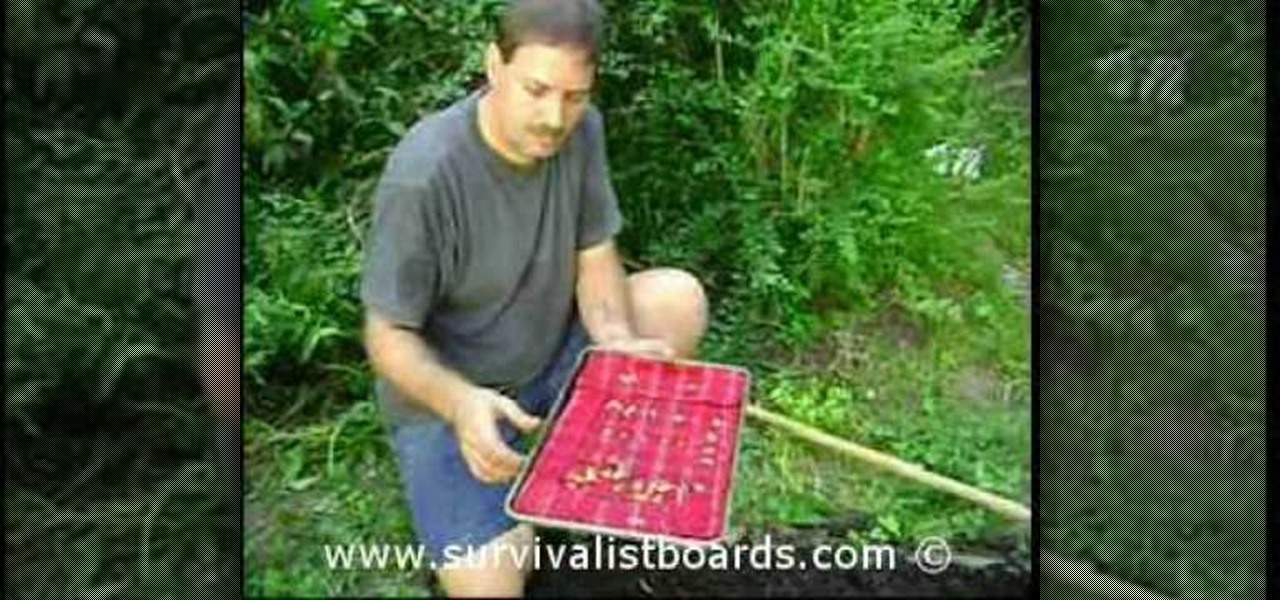
How To: Plant sprouts
Learn how to plant sprouts and grow a garden in your back yard,

How To: Get seeds ready for planting
How to get your seeds to sprout so you can plant them. Its common practice to plant 3 seeds an inch apart and see how many sprout. Using this method, you only plant the seeds that sprout. This saves time and eliminates waste.
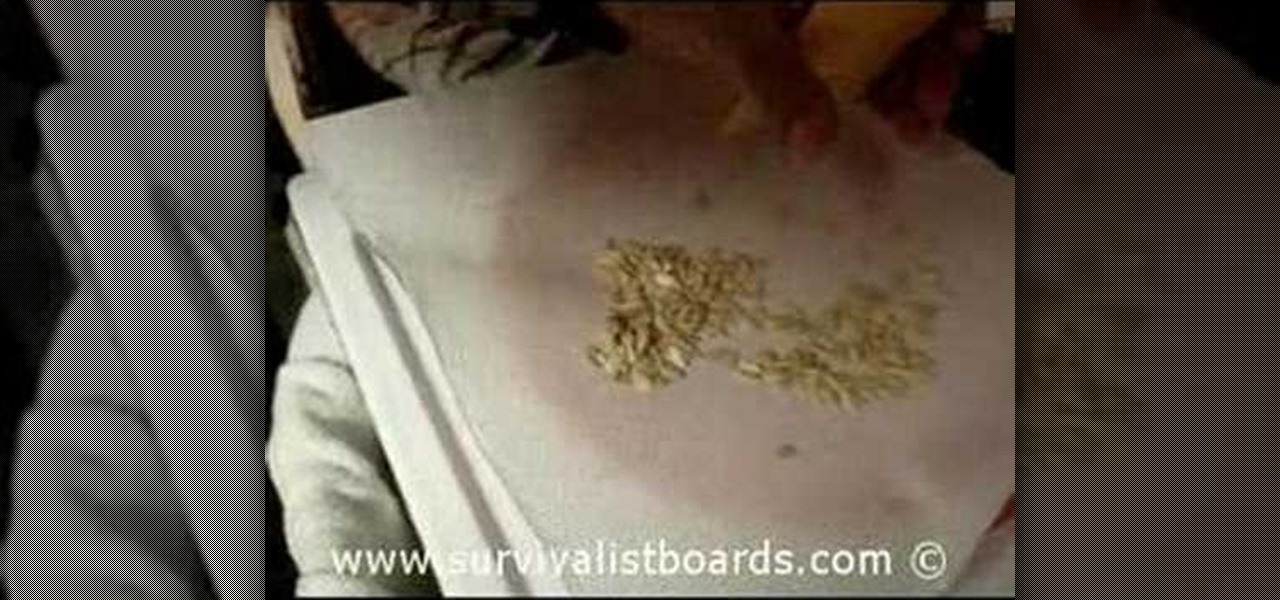
How To: Save seeds from your vegetables
How to save seeds from vegetables from your garden.

How To: Breed and deal orchids
This video series gives you expert knowledge on growing orchids and finding help in your local area. Bill Hutchinson talks with you about breeding and crossbreeding orchids, the importance of naming new orchids, and how to research your plants. He also gives you advice on taking the next step, how to connect with other orchid growers in your area and find support.

How To: Grow orchids indoors
This video series gives you expert knowledge on growing orchids indoors. William Hutchinson teaches you all about many varieties of orchids and how to grow them successfully in your home. In this series he shares his experience growing orchids on bark, osmundine, sphagnum, and sponge rock.

How To: Plant orchids and care for the development
This video series gives you expert knowledge on orchid growth and structures. William Hutchinson teaches you all about the leaves, roots, pseudobulbs, and preferred growing conditions of many common orchid types. This is the first in four series on orchid care.
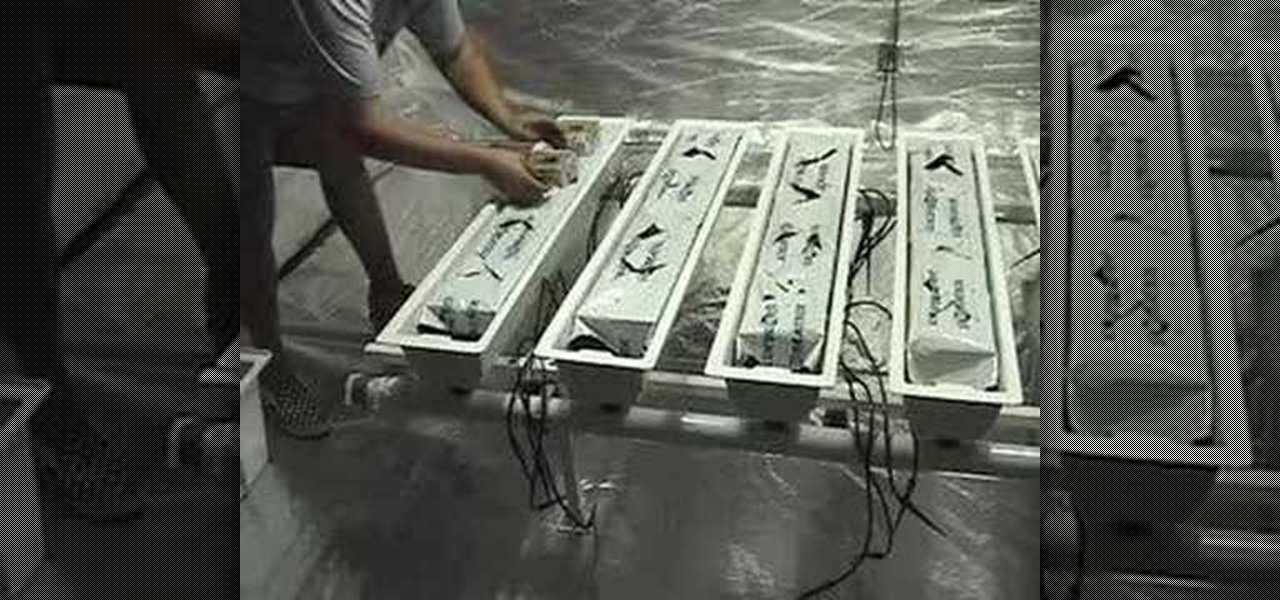
How To: Set up a hydroponics top feed drip
This video will show you how to set up a top feed drip for hydroponic plants using stonewool slabs.
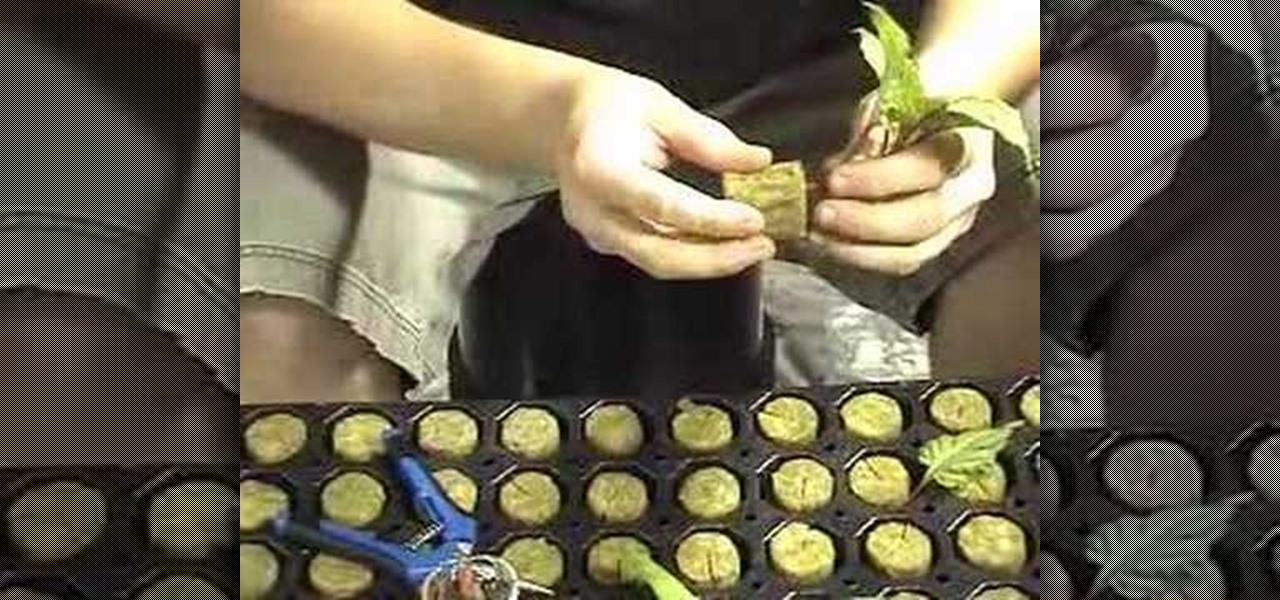
How To: Clone plants
This video will teach you how to propagate plants from a stem cutting using asexual propagation (a.k.a cloning). The methods shown are mainly for hydroponics but can be used in soil.

How To: Plant and grow Snapdragons
This video series with Jose Zuniga as your Snapdragon guide, covers all aspects of planting, growing and caring for Snapdragons. He discusses both keeping them in tubs and as well as in your yard or garden. The series is broken into 12 video parts that will play sequentially.

How To: Use peach pits in garden mulch
If your garden needs mulch, here's a peachy-keen new idea: a mulch made of peach pits! Michael Glassman shows how Pits in Pieces™ benefits plants while repelling pests.
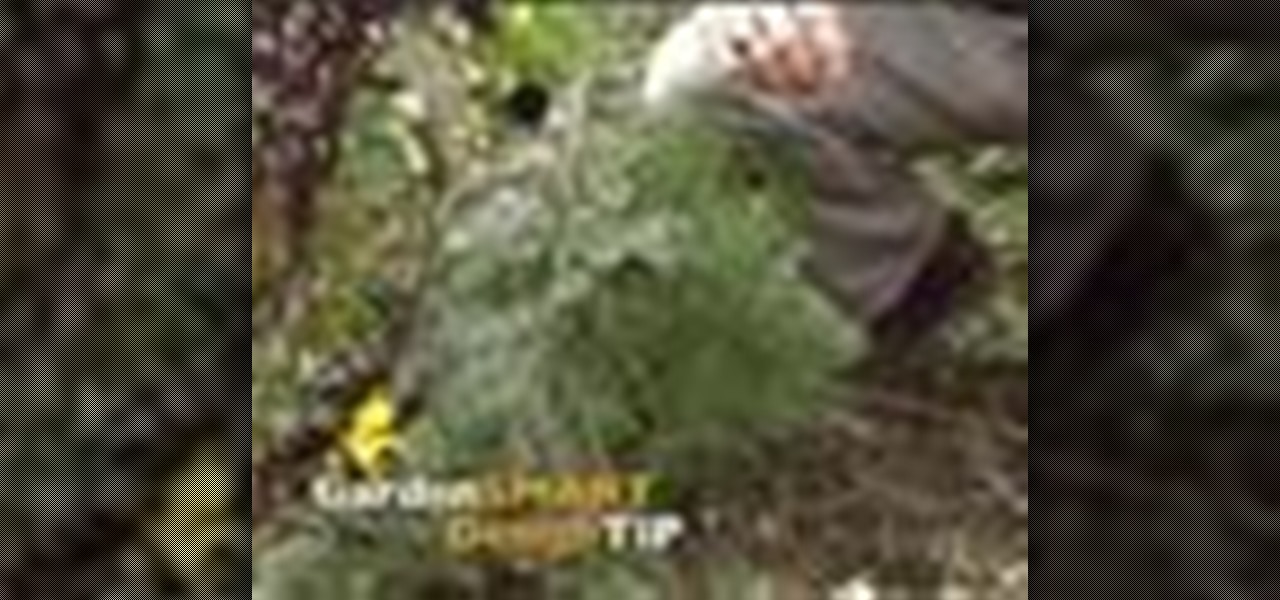
How To: Protect herbs in winter months
Evergreen bows, like Hemlock, can be placed over tender plants to protect them against cold, winter winds. Gently place them over the plant creating a tepee or tent form. It will allow some air circulation underneath so the protected plant doesn't rot but the Evergreen bows protect it against the cold.

How To: Water and prune azaleas
Azaleas are relatively care free. To ensure they look their best they require adequate moisture. Make sure the roots in particular get plenty of water especially during the first year or so. Mulch is important, two or three inches of horticultural mulch like straw or pine bark will help protect their roots, which grow close to the top of the soil. They don't need to be pruned. If you want to shape or remove dead wood, wait until after they bloom. By doing it at this time the dead wood is easi...
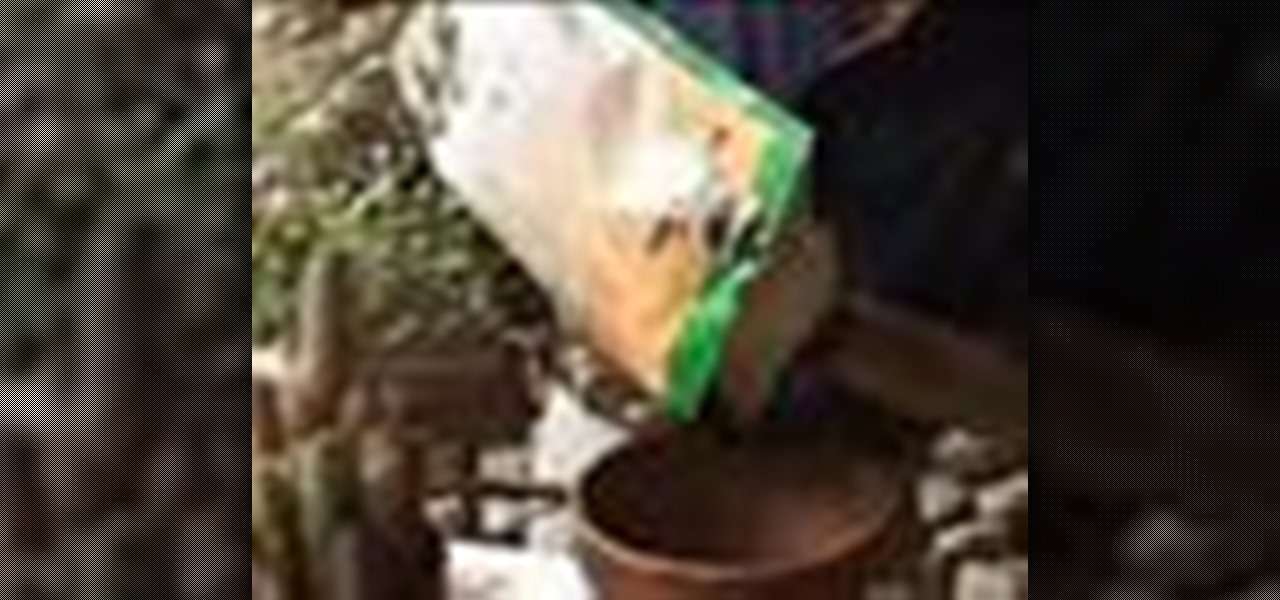
How To: Plant cactus in containers
Cactus can do very well in containers if attention is paid to several things. One, use terracotta, it breathes well. Also, make sure there is a hole in the bottom because the soil shouldn't be sitting in water. And importantly use a Cactus soil mix, a mix that has a lot of sand, a lot of perlite. Although most plants don't thrive in mixes with a lot of sand, because it dries too fast, Cactus requires this condition. In fact, over watering is the number one way to kill a Cactus. To place the C...
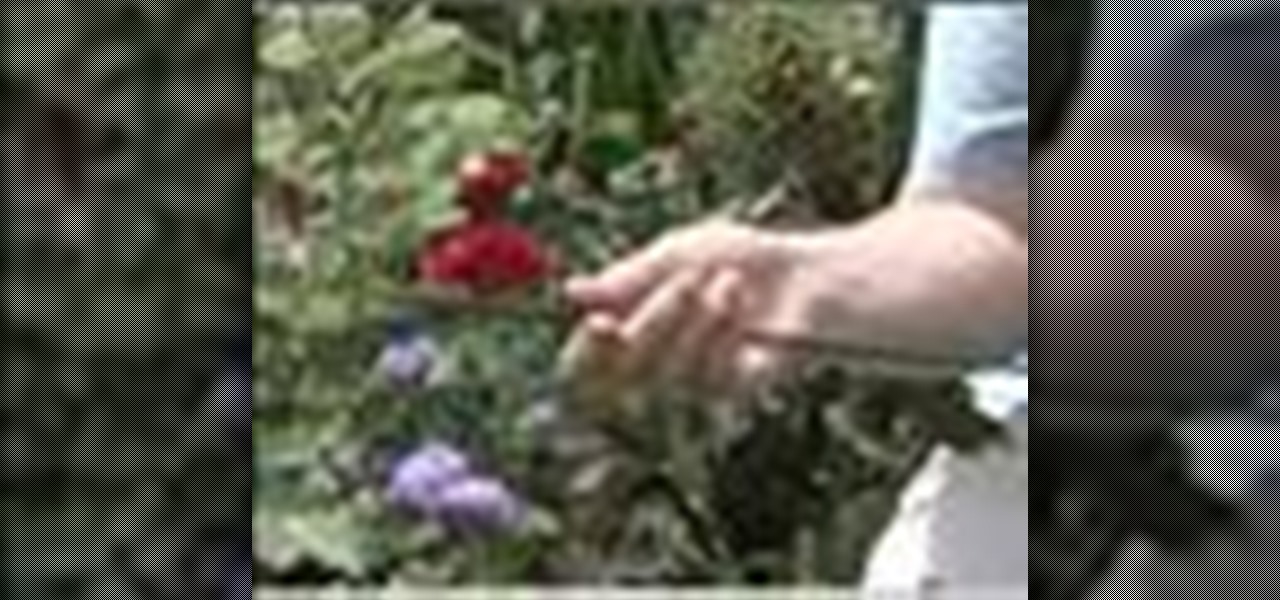
How To: Stake tall plants
We next try some staking, because this garden has tall plants. Tall plants add verticality to the garden, but they only stay tall until a thunderstorm hits. They need staking if for no other reason to keep them out of the mud. Dahlias definitely need staking because their flowers are enormous and bend easily. Plan for this ahead of time. For staking there are lots of possibilities. You can use bamboo and string or you could use multi-purpose stakes. This metal stake is ideal for a single stem...

How To: Protect plants from frost
Frost is in the air. If you have tender plants like basil, pepper or impatients when that cold weather comes it will zap those plants. Often, if you can get through those first couple frosts, an Indian summer, that can last weeks and weeks, will follow. If you can protect your plants during this time you can have blooms for much longer. There are several ways to protect your plants. You can use a traditional device like a glass cloche. The nice thing about them is they are decorative and will...

How To: Make a tiered garden
Oscar-winner Sally Field and Martha Stewart create a beautiful tiered garden. Make a tiered garden.
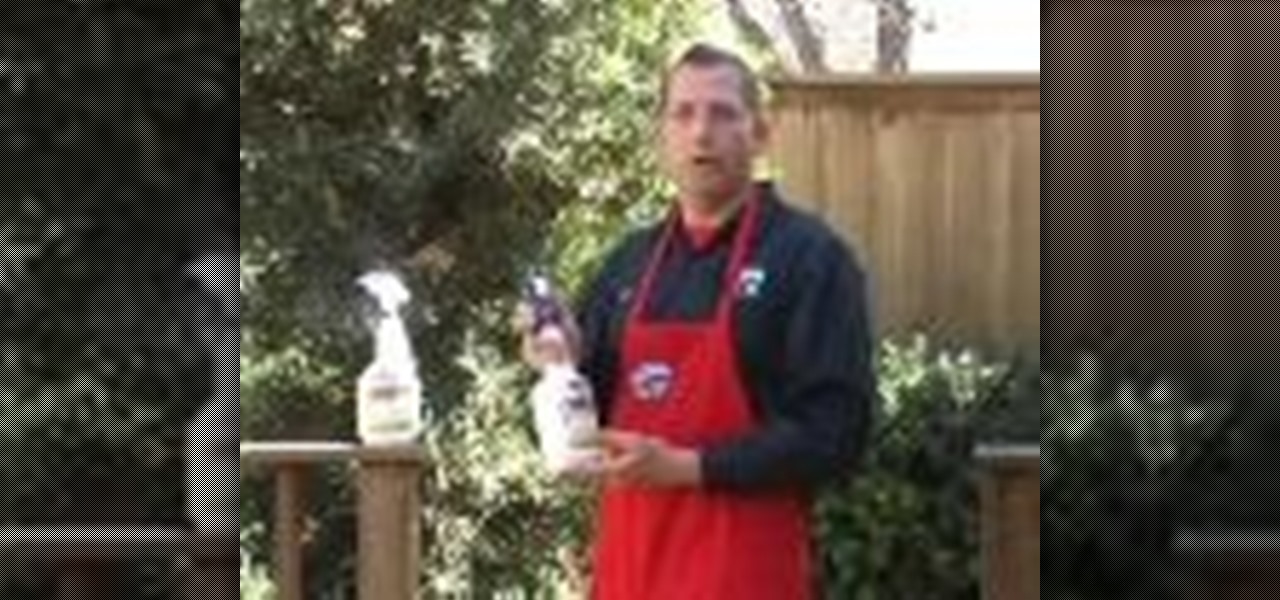
How To: Use an orange guard non-toxic bug killer
Lars shares some tips about using an orange guard non-toxic bug killer. These helpful and easy-to-understand tips will help to keep pests out of your garden. Watch video for best results.

How To: Plant and care for little bamboo
The addition of plants can add warmth and beauty to any room in the home. Unfortunately, not all of us were born with a green thumb. This video shows you how to plant and care for one of the most beautiful and low-maintenance members of the plant family, the little bamboo. Supplies Needed to Plant Bamboo are a vase or plant pot without a hole in the bottom, river rocks, wire ties, room temperature water and 6 to 8 sticks of bamboo that are approximately 4 to 8 inches in length. To maintain yo...
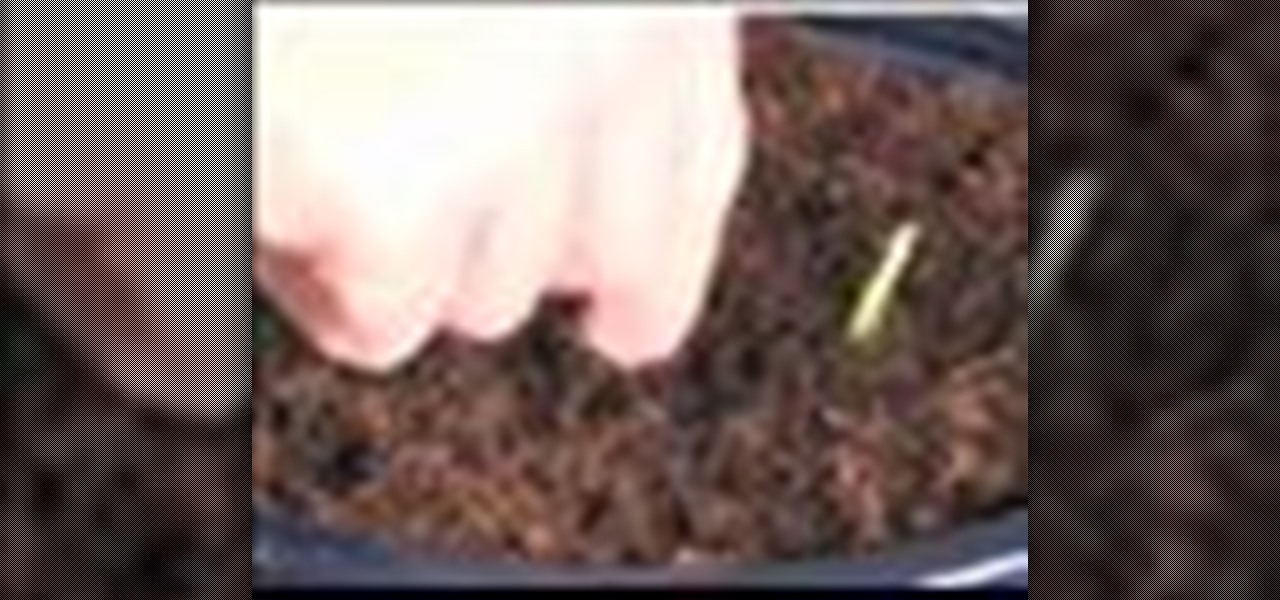
How To: Plant bonsai tree seeds
Bonsai trees have a great history to them. Although most people think a bonsai tree is a specific type of tree, in all reality, the word "bonsai" quite literally means "tree in a pot. To plant a bonsai tree from seeds, you will need: bonsai tree seeds, a peat pellet, paper towels, a sealable plastic bag, small pellet tray, a bonsai pot, bonsai soil, a larger tray and water. The seeds need to germinate before potting the seeds. This process generally takes nine days.

How To: Grow house plants from tip cuttings
In this series of gardening videos, our expert on plant propagation tells you how to grow new house plants from tip cuttings of existing ones. She demonstrates how to take your trimming in order to get the best results, then explains in detail how to prepare the soil for maximum growth with nutrients and hormones. Learn what tools you need and what type of plants will react best to this type of propagation. And you will have a full and healthy house full of plants in no time at all!

How To: Grow Mexican heather
This series shows you how to plant and grow Mexican heather and of course, take care of it once you're done!
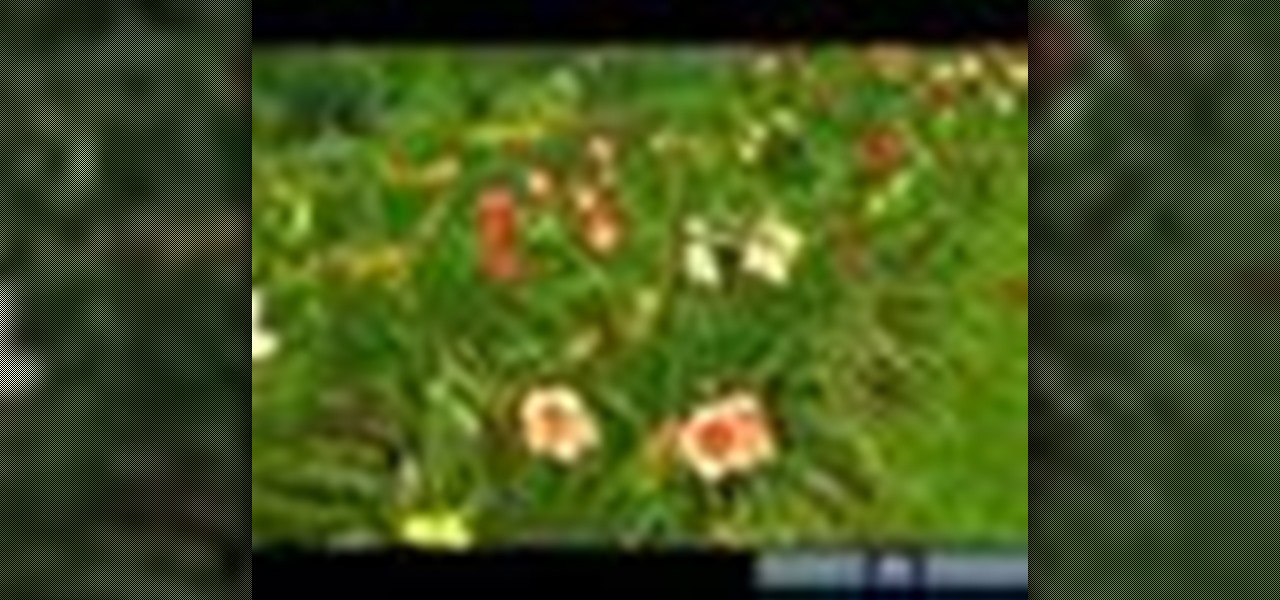
How To: Grow daylilies
Our perennial gardening expert Martha Cycz tells you everything you need to know about daylilies, including how to incorporate them into your garden, how to position them for the right amount of shade and how to trim them without causing damage to the stems. She even discusses their root systems and suggests attractive color combinations. If you are unsure whether or not daylilies deserve to be in your garden, these videos will decide for you.
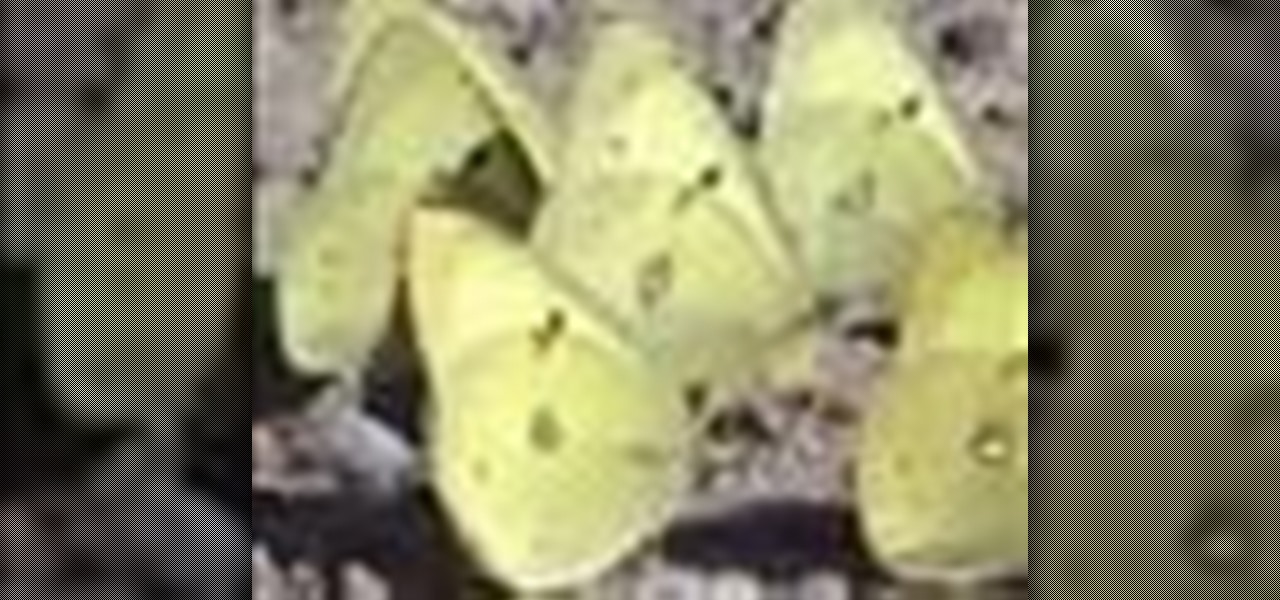
How To: Document and collect plants
Plants dominate the living landscape around us. Learning about this essential part of ecosystems by collecting and identifying plants should be a part of any life sciences curriculum. Designed to support the Plant Press project at Hila Science Camp, this video discusses collecting and classifying plants and the importance of the classification system developed by Carl Linnaeus.

How To: Make plant cuttings
Cutting allows you to preserve your plants over winter and start a new plant from the same one in another place. This video will show you how. Make plant cuttings.
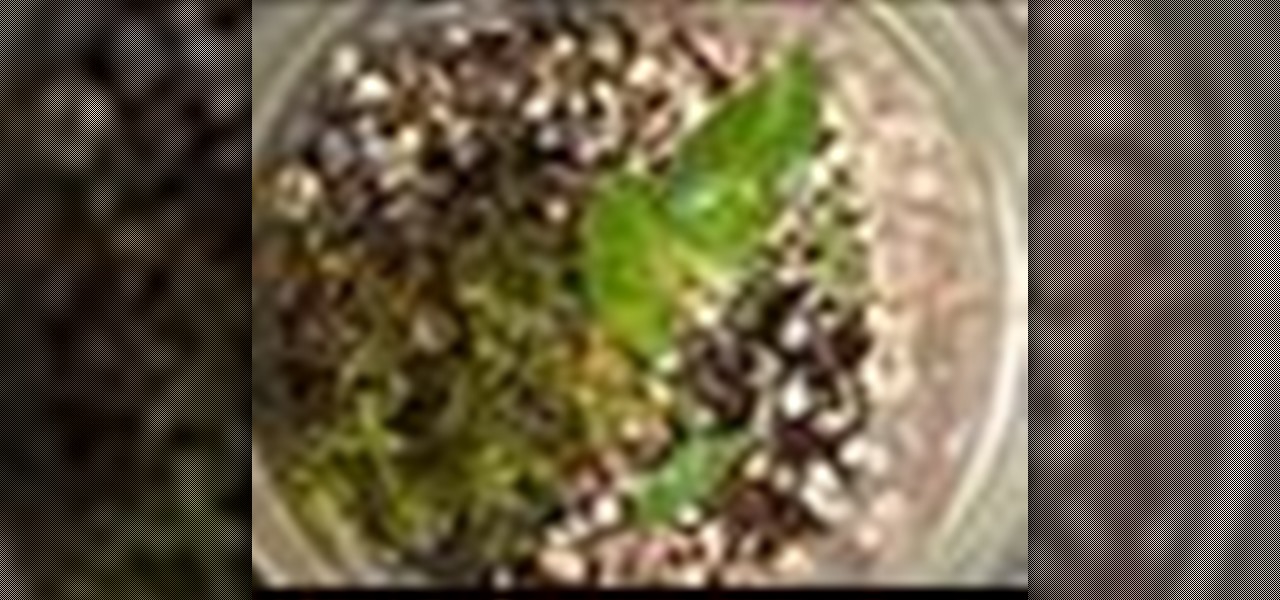
How To: Build a terrarium or indoor garden
Build an indoor garden or a terrarium. All you need is gravel, soil, plants and a container. You can also add seashells and gnomes to mix it up.

How To: Harvest tomatoes
To get the best out of your vegetable harvest, you must pick them at the right time and in the right way for a flavorsome and bountiful crop. Tom Cole shows us how to harvest tomatoes. Harvest tomatoes.
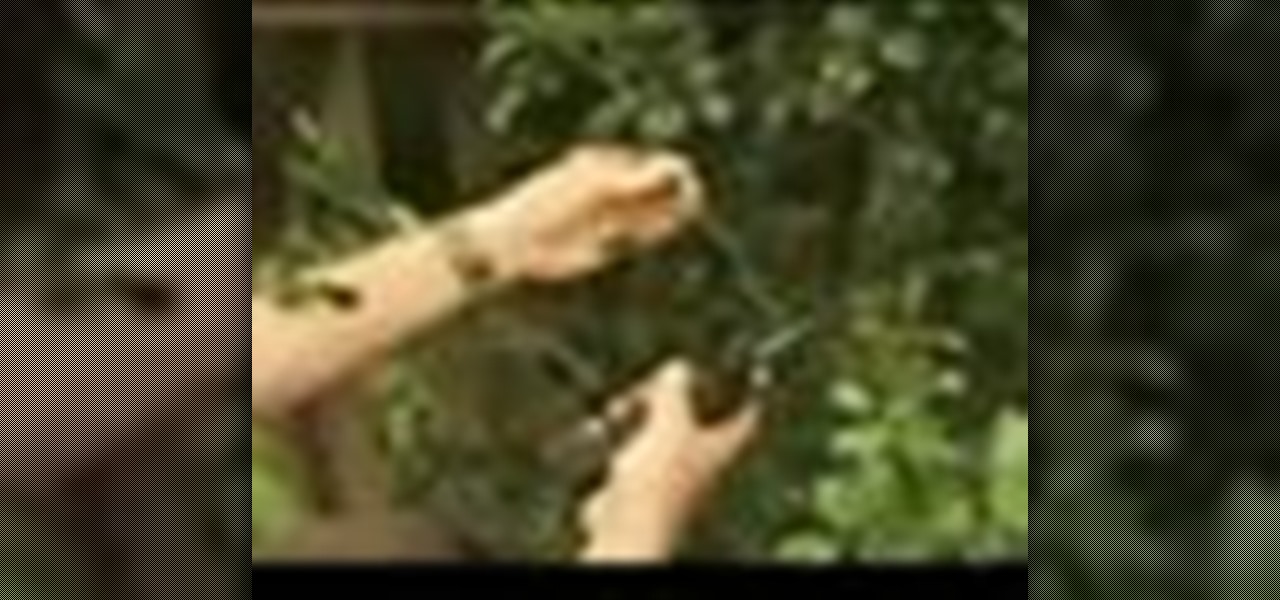
How To: Prune roses in container garden
Pruning roses is one of the hottest trends in container gardening is using flowering shrubs. Of course, the king of flowering shrubs are roses. Mindy has several different examples of roses in containers. One was beautiful last year, it bloomed all season long, but this season is out of control. It's too big and gangly. Eric tells us roses bloom on new growth. If cut back it would have blooms again in 6 or 7 weeks. Be bold when pruning, take it back. Mindy doesn't have the nerve to cut so dra...
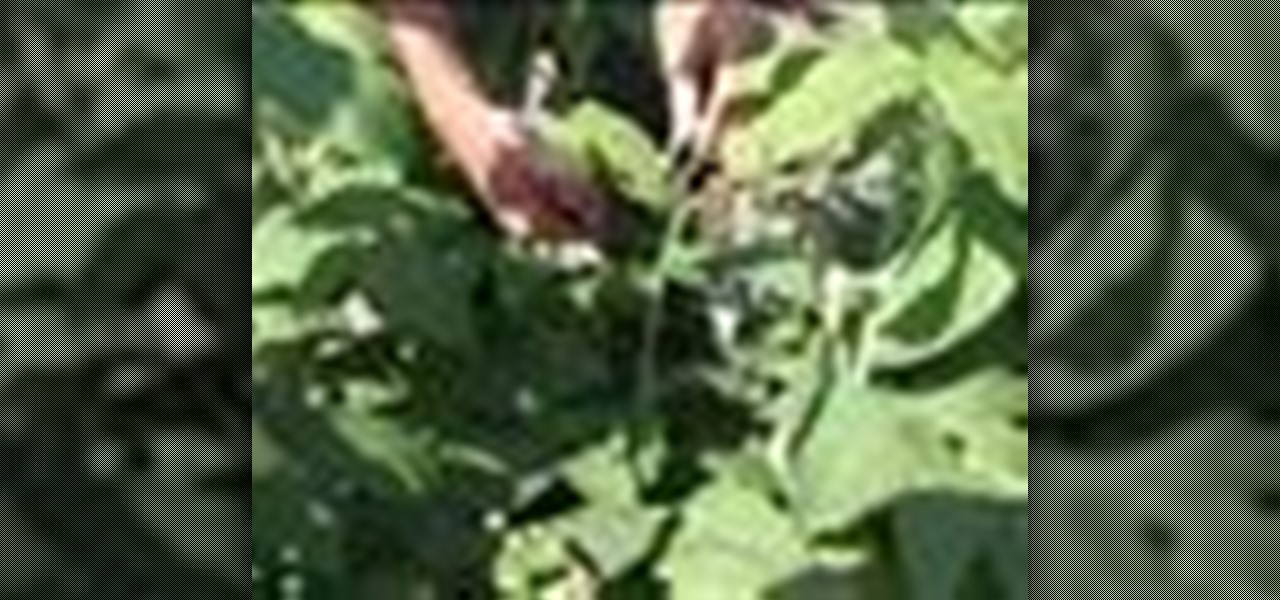
How To: Get rid of raspberry plant pests
One of the few raspberry pests is the raspberry cane borer. It is an easy pest to control organically because all you do is clip it out, no spraying and no one gets harmed. It's simple to find, look at your cane, you'll see where it is dead, then go down about 6 inches and you'll see 2 little girdle lines. The adult has girdled the cane and laid an egg in between. If you don't clip this out that egg will hatch, the worm will go down that cane and kill the whole cane. So as soon as you see the...
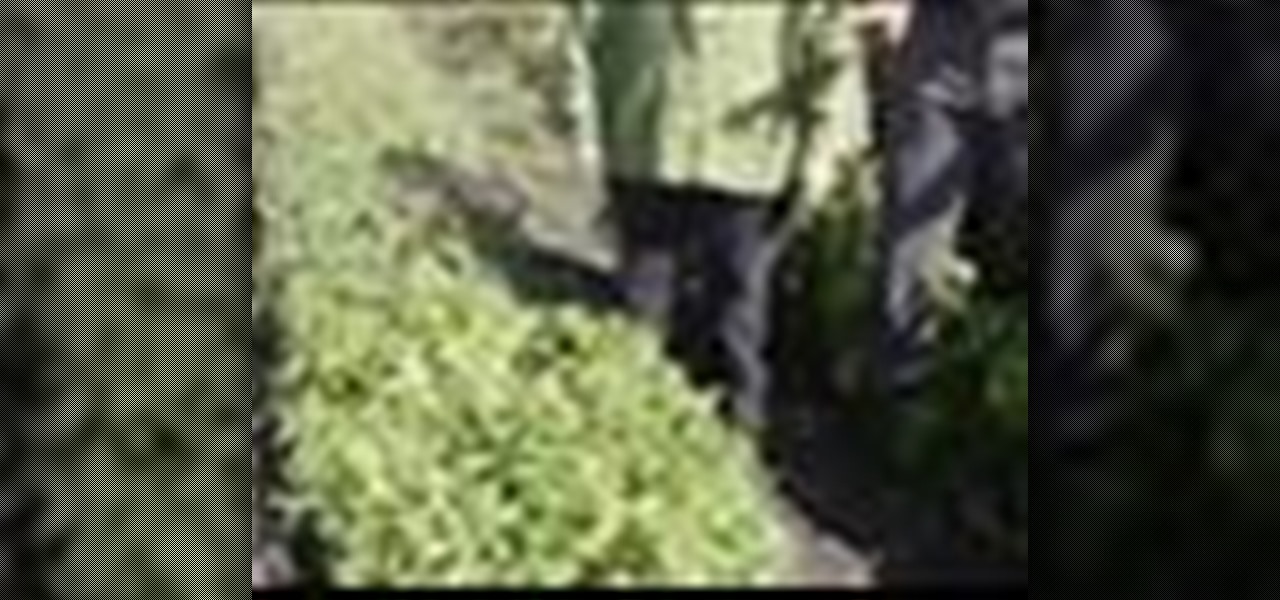
How To: Use basil after the season is over
We next visit the farm, where the real production takes place. They are growing some unusual items. Several herbs, like Shiso or Perilla (Perilla frutescens) are available in green or red varieties. They have a very unique flavor, almost nutty with a touch of citrus and a very aromatic flavor. Jerry uses them to make a green apple shiso ice. And you can use it as a salad green when it's young and actually use the seeds as well. Use the tips in salads and the seeds when they start to form, the...

How To: Plant broad beans
Tom Cole shows us how to plant broad beans. Using the listed tools from the video and the easy steps from the video, Tom Cole stresses not to position the beans opposite of each other so they do not block each others sunlight. Plant broad beans.

How To: Plant garlic cloves
Tom Cole shows us the best ways to plant garlic. Video discusses that garlic cloves should be planted in autumn or spring and harvested 6 months later. They can be planted from bulbs or cloves you buy at the grocer. Plant garlic cloves.

How To: Harvest rhubarb
Tom Cole shows us how to harvest rhubarb. Video explains the proper times when to harvest rhubarb, how to harvest them, and where to store the final rhubarb. Harvest rhubarb.

How To: Transplant cabbage from seed bed to a harvesting area
Tom Cole shows how to transplant cabbage from a seed bed to a harvesting area. Tom uses a pitch fork to carefully remove the cabbage from the seed bed. He then plants the cabbage into the harvesting area and waters the plants. Watch video for best results. This also works with cauliflower and broccoli. Transplant cabbage from seed bed to a harvesting area.

How To: Harvest red currants and white currants
Tom Cole shows us how harvest red currants and white currants. Video says they are best harvested from early to mid summer and to study its color to determine their quality. Short video explains harvesting easily. Harvest red currants and white currants.
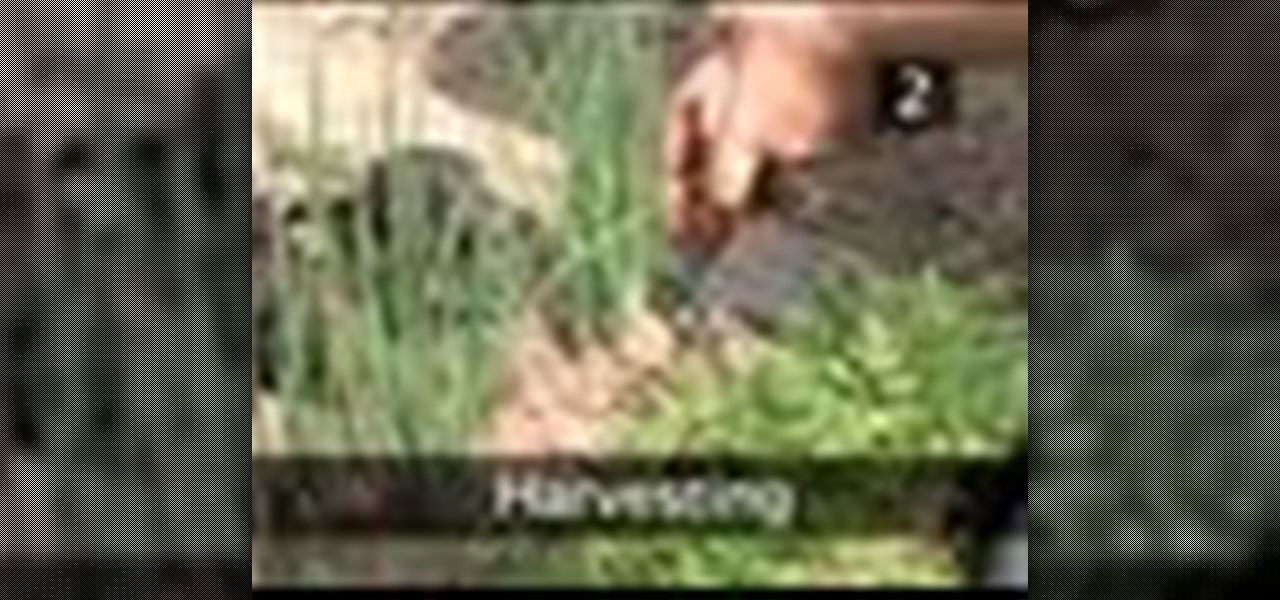
How To: Harvest spring onions
Tom Cole shows how to harvest spring onions. Using a handfork, Tom harvests the onions in the spring and autumn. Tom's many tips ad tricks show how to get tasty onions out of your garden. Harvest spring onions.
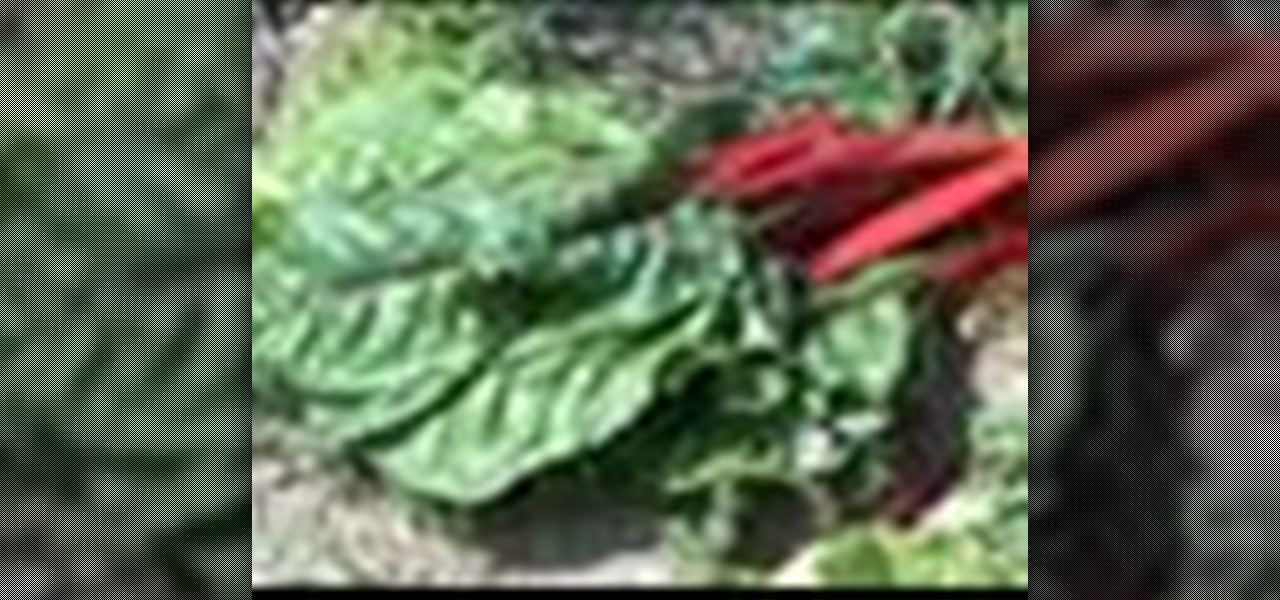
How To: Harvest swiss chard
Tom Cole shows how to harvest swiss chard properly. Tom harvests in late spring to early autumn. Harvesting them in the cool hours of the morning is key in this short and simple video. Harvest swiss chard.



